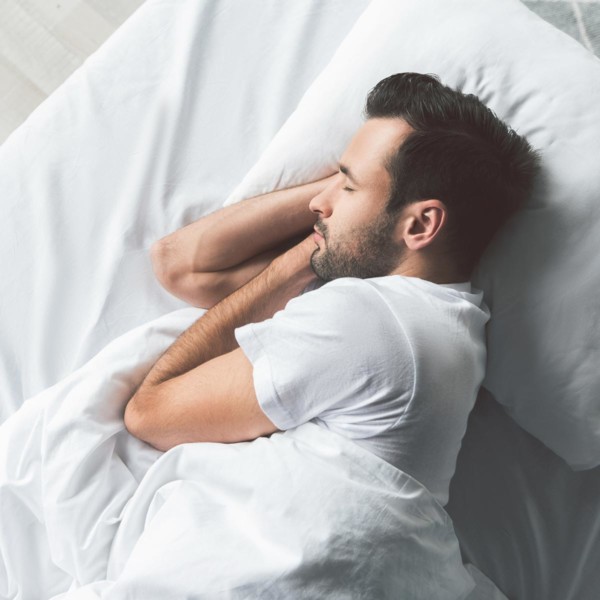
Getting a proper amount of sleep is a key contributor to your physical and mental health, safety and ability to perform at a high level during the day.
The Cleveland Clinic warns that the long-term effects of sleep problems can seriously affect your health, leading to such conditions as heart disease, diabetes, obesity and impaired immunity.
Short-Term Negative Effects of Lack of Sleep Include:
- Reduced alertness and sleepiness during the day
- Impaired memory
- Foul mood and irritability that can impact relationships
- Limited attention span
- Inability to think clearly to make decisions, leading to poor judgment
- Increased risk of car accidents
- Inability to participate in normal activities and exercise routine, impacting your quality of life
Benefits of Good Sleep
The U.S. Department of Health and Human Services reports that sufficient sleep can help you:
- Reduce the frequency of getting sick
- Maintain a healthy weight
- Reduce the risk of serious health issues like diabetes and heart disease
- Lower stress and elevate your mood
- Sharpen your thought process, enabling you to perform well in class or at work
- Interact better with others
- Make wiser choices, and reduce the risk of injuries
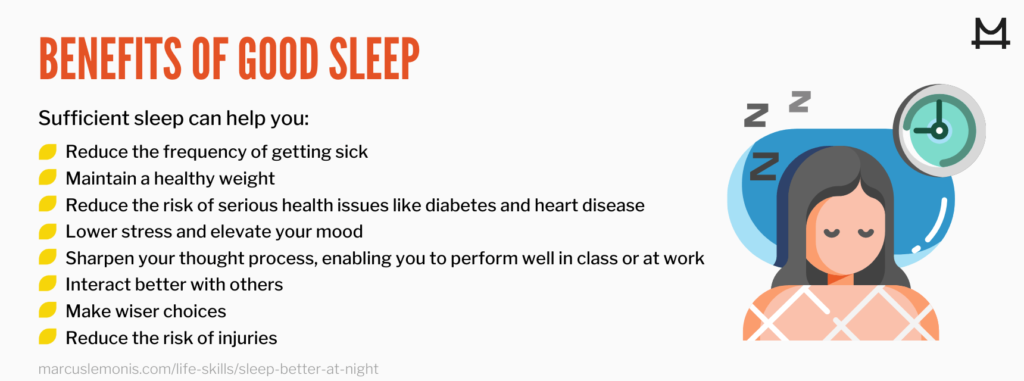
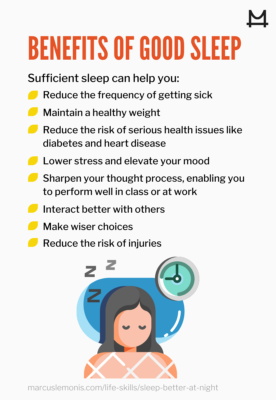
Tips to Sleep Better
To help you sleep better, health professionals offer guidelines for the general population as well as specific age groups. Researchers have also studied the impact of seasonal climates.
General Tips
The following are general tips from the American Academy of Sleep Medicine (AASM):
- Establish a consistent bedtime schedule.
- At least 30 minutes before you plan to be asleep, practice relaxation techniques, such as meditation, music or breathing exercises.
- Avoid electronic devices at night because exposure to light at bedtime may interfere with your sleep cycle.
- Do not drink coffee after lunch or liquor close to bedtime. Caffeine and alcohol can be disruptive to sleep.
- Identify rituals that help you wind down. This can be anything from sitting quietly while drinking a warm cup of herbal tea to writing in a journal. Some people enjoy meditation.
- Configure your bedroom to mimic a cave: quiet, dark and cool.
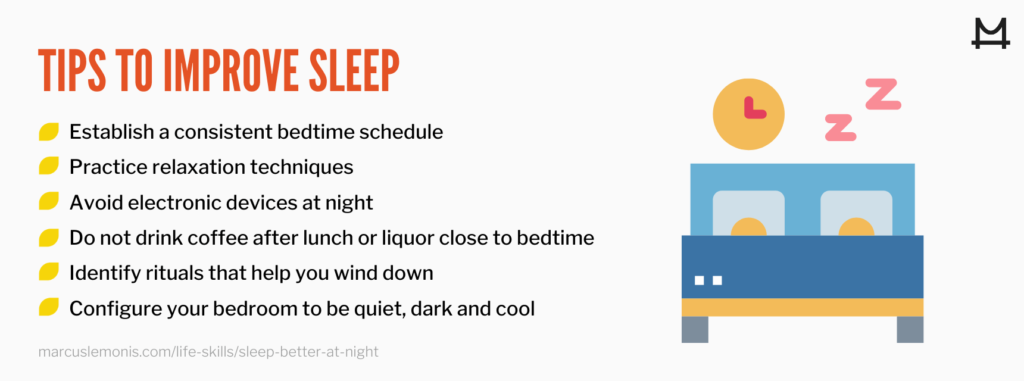
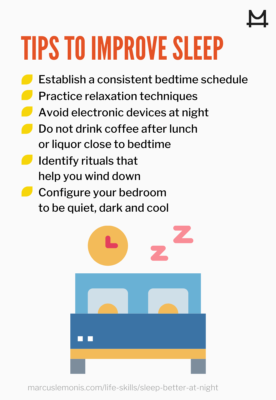
Try limiting food consumption to a 10-hour window. Researchers from San Diego’s School of Medicine studied time-restricted eating to determine if that behavior would result in weight loss. Apparently, it did, and “participants also reported having improved sleep quality and more energy.”
Age-Specific Guidelines
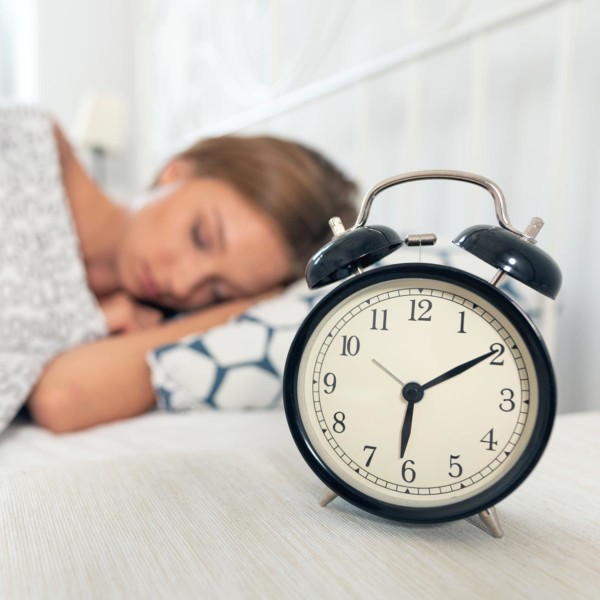
As we age, our sleep needs change. An online bedtime calculator will tell you when to go to sleep based on your age and when you need to wake up.
Recommended sleep duration ranges:
- Infants 4 to 12 months old: 12 to 16 hours, napping included
- Children 1 through 5 years old: 11 to 13 hours, napping included
- Children 6 to 12 years old: nine to 12 hours
- Teenagers through age 18: eight to 10 hours
- Adults: at least seven hours.
Age-Specific Activities to do Before Turning Off the Lights:
- For infants: Give your baby a warm bath, gentle massage, cuddle, and sing a lullaby.
- For children: Turn off electronic devices at least one hour prior to bedtime. Develop a routine of a warm bath and reading or singing before bed.
- For teenagers and adults: Turn off electronic devices at least one-half hour prior to bed. Take a warm shower or bath. Then read or write in a journal.
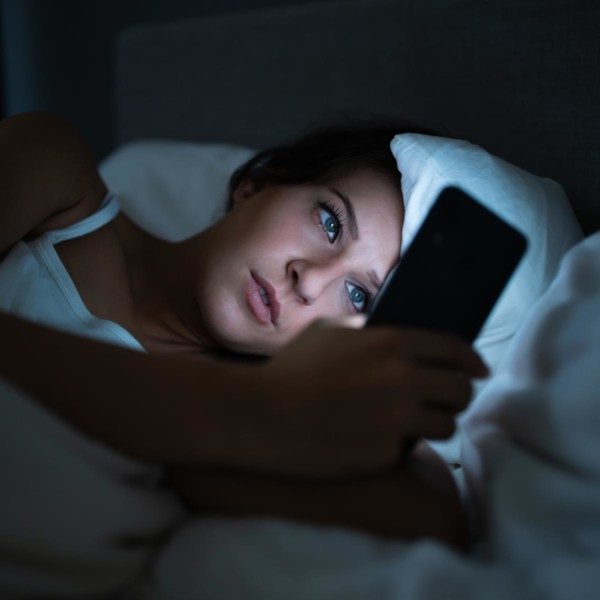
Health Conditions
For sleep problems linked to health conditions, consult with your doctor.
People with cancer are at an increased risk for sleep problems, according to the American Cancer Society. Sleep disturbances may be a consequence of surgery, medication, radiation or hormone therapy.
Insomnia, which is difficulty falling or staying asleep that continues for more than three months, can be caused by depression, anxiety, medication, alcohol, caffeine or tobacco.
Sleep apnea involves a change in breathing patterns, sometimes caused by a blockage. It may cause you to snore and wake you up during the night. Your doctor can run tests to diagnose the type of sleep apnea and advise on treatment options.
Change of Seasons
If you live in the U.S. northeastern area, you may find that your sleep patterns change throughout the four seasons. At least, that is what the AASM survey shows. According to the survey results, “34% of U.S. adults report sleeping more in winter, compared to 10% who sleep less than usual. This is a near reversal from the brighter, more activity-filled months of summer, during which 36% of those surveyed said they sleep less than usual, while 9% sleep more.”
If you try all these suggestions and still need help, create a sleep diary. Not only may this reveal clues to guide you in modifying behavior, but the information can also help your health care practitioner identify patterns. In your diary, record changes in breathing, medication you take, what you eat or drink in the evening, activities during the day and at night, if/when you nap and for how long, and how lack of sleep impacts your daily activities.
In the meantime, savor a cup of chamomile tea, dim the lights, and listen to soothing tunes. Sweet dreams!
- What are some things you do currently to get better sleep?
- What tips from above do you think will benefit you the most?





